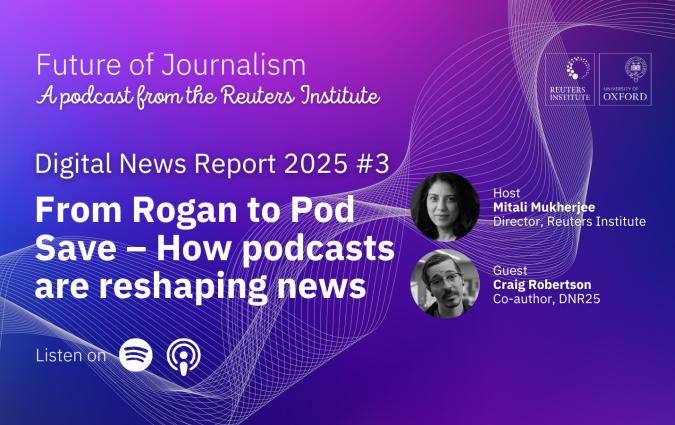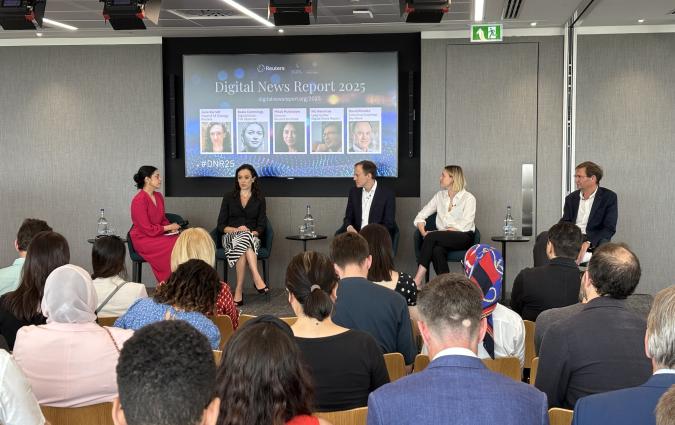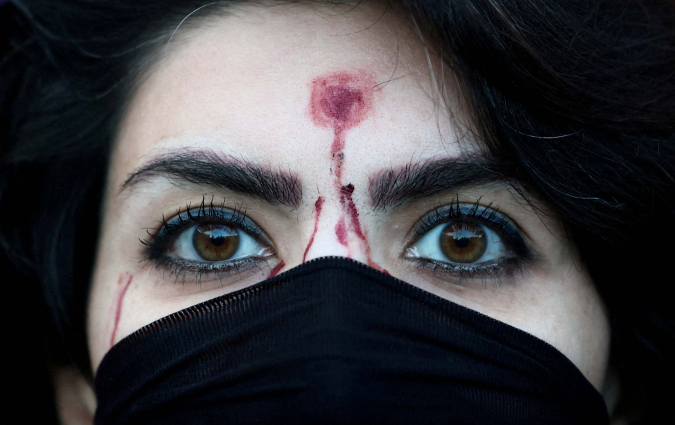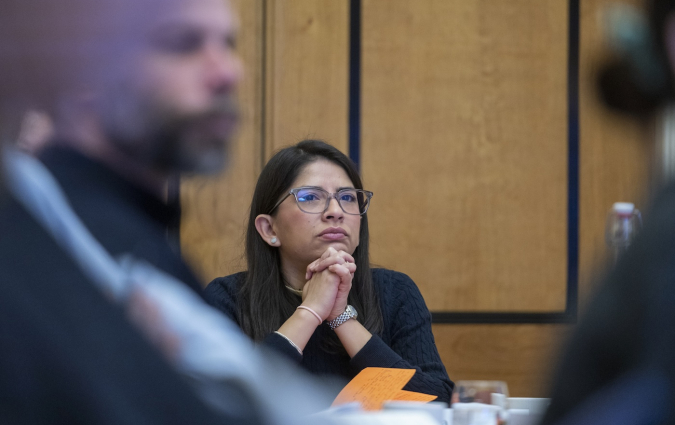African podcasters are now recognised globally. Can they transform this success into a viable business?
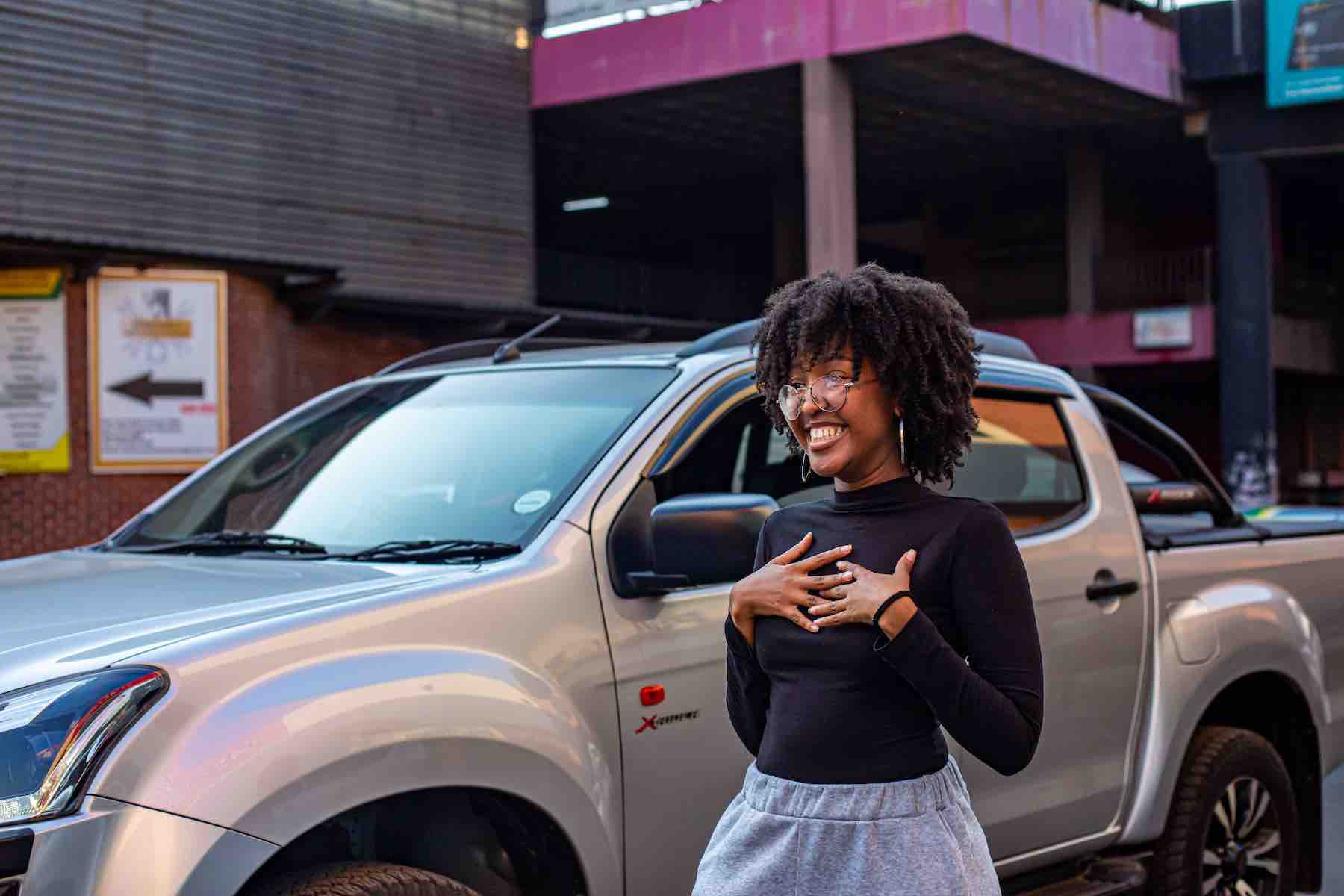
Mary-Ann Nobele, the lead character in I Will Not Grow Old Here, a popular podcast series produced by Radio Workshop.
Podcasting is becoming increasingly popular in Africa. Despite structural issues and limited internet penetration, the medium is attracting audiences in search of new ideas and captivating stories. Distribution and monetisation, though, remain key challenges and threaten growth in a continent where audio has always been widely consumed.
This piece explores the rise of podcasting in the continent with the help of six African journalists and founders who are working in the space. Their insights provide an overview into a medium that is popular with young audiences and that could be useful for legacy news organisations trying to build digital loyalty.
The audio space in Africa
“Radio is still widely consumed in Africa and podcasting is an extension of this,” says Molly Jensen, CEO of Afripods, a pan-African podcast hosting platform headquartered in Nairobi. “Podcasts allow audiences to listen on demand. So both listeners and creators are comfortable with the medium and this has contributed to the massive growth.”
African countries with digital innovation hubs such as South Africa, Nigeria, Kenya and Egypt have seen faster growth in podcasting. According to Melissa Mbugua, co-founder of Africa Podfest, the podcasting space in Africa is buzzing, with a lot of people creating and listening to interesting stories.
Founded in 2019, Africa Podfest is a women-led organisation focusing on research, community building, marketing and distribution of high-quality African podcasts. They have partnered with Baraza Lab to do reports on the podcasting space in Africa.
One of those pieces of research stresses that the medium has created spaces for people who have often been excluded or misrepresented in the mainstream media. Some of the pioneering podcasts in the continent, for example, were queer-led or queer stories such as Afroqueer and The Spread.
“Podcasting in the continent is largely driven by female content creators and female audiences, and we think this is because there is a gap in representation in the mainstream media,” says Mbugua. “Podcasts in Africa are more women-led, whereas in the US and Europe the space is dominated by men. Here women have more freedom, more visibility, and more opportunities to lead the industry.”
And yet African podcasting is still in its early stages. A major challenge has been the lack of networking and support. “Most podcasters are learning in a silo because there aren't many opportunities for them to access each other,” Mbugua says. “If you're looking for an editor, where do you start if you’ve never even been in the media space?” she says. That’s why Africa Podfest launched its Africa Podcast Day and runs the Africa Podcast Festival to celebrate podcasting in the continent.
A global hit
Even though the industry is still in its formative years, African podcasts are gaining ground and recognition in global spaces. In a first for Africa, I Will not Grow Old Here, a podcast series produced by Radio Workshop, was nominated for one of Podcast Academy Awards in the Documentary Category. The category included powerhouses such as New York Times Serial production, We were three and Lava For Good podcast Bone Valley among others.
“To be nominated is an incredible achievement for us as a small team,” says Dhashen Moodley, Senior Producer of Radio Workshop and one of the creators of the podcast. “It is astounding for us to be considered for an award in the same category as productions that have been making audio documentaries for over a decade.”
I Will not Grow Old Here is a three-part series focusing on the story of one young person, 23-year-old Mary-Ann Nobele, who investigates high unemployment rates among the youth in South Africa and their aspirations to succeed. She tells the story through her life and self-promise of making it out of Alexandra Township, one of South Africa’s oldest townships that experienced a lot of violence and oppression during Apartheid. Today, Alexandra Township is a melting pot, a place recognised as the birthplace of art and Amapiano music as well as a place rife with crime, gang violence, and drug abuse.
“The question at the core of the story was, what is holding Alexandra's youth back from success? Why are they finding it so hard to get a job? How can you be in this place that was promised democracy, where Mandela spent his youth and all these luminaries came from, and not be able to tap into that same success yourself?” Moodley says.
Radio Workshop in figures
Radio Workshop, previously known as Children's Radio Foundation, was set up in 2006 as a non-profit organisation and has worked with over 100 community radio stations in 10 different African countries. Today it’s reaching up to nine million listeners weekly and has trained over 5,000 young Africans in audio skills.
“During the COVID-19 lockdown, every organisation wanted to start producing its own podcast,” Moodley says. “What we found is that there were few opportunities for African podcasters to learn how . We wanted to fix that and so we decided to train young people to make narrative nonfiction audio stories.”
Moodley argues that podcasting is a very democratised space and encourages creators to tell stories that are important to them without layers of bureaucracies that exist within media organisations.
Radio Workshop recently ran a 10-day training for 10 podcasters from across the continent. “Some made conversational shows,” Woodley says. “Others made single-voice podcasts, with just them on the mic talking. But we introduced them to the toughest and most time-consuming version of podcasting, which involves telling a story. What is the narrative arc? Who is your character? What challenge are they trying to overcome?” This meant recording interviews in the field, writing a script, selecting the music and mixing it all using audio editing software.
Embracing narrative audio
Narrative podcasts have become increasingly popular. African podcasters are using the format to cover themes such as true crime, history, personal stories, arts and culture.
“People love good stories,” says James Smart, Managing Editor for newsroom production at Nation Media Group.
Before assuming this role, Smart was the podcast editor at the Nation and has produced Kenya's pioneering immersive podcast series such as Case Number Zero, an audio show digging into the disappearance of blogger and journalist Bogonko Bosire, who went missing in September 2013. The investigation pieces together clues of what might have happened to Bosire through interviews of friends and family conducted between 2015 and 2020. The series attracted over 300,000 listens in the first two weeks after its release and has garnered over one million listens ever since.
“The reception was eye-opening for us,” says Smart. “This was the first time such a story was being told in the country. It showed us that people care for any story that is told well. People cared about Case Number Zero, and they didn't even have to have known Bogonko Bosire. They just followed the story.”
Smart notes that podcasting in Kenya (and Africa more generally) is in a good place as many artists are coming up with original concepts. However, he notes that some of the major challenges that podcasters face are distribution and the lack of good internet connection.
“Most people are still not aware of where they can access our podcasts,” he says. “It would have been ideal if Android phones came pre-installed with a podcast app, given that most smartphones on the continent are Android-based.”
Smart is optimistic about the future and thinks podcasting will keep growing. “In the near future we will have a lot of production houses that specifically produce audio content to feed such a hungry market,” he says. “Africans are waiting for well-produced, well-told stories.”
A podcast network in Ghana
In 2017, Donald Aryee and Cyril Afeku started The Gold Coast Report as an online publication. Both journalists wanted to feature important stories missing from the mainstream media. A few months later, though, Aryee and Afeku decided to venture into podcasting.
“It was a medium that was almost non-existent in our Ghanaian space, “Aryee says. “But at that point we felt like it would be an interesting space for us to start conversations that mattered to our communities.”
They launched their network with three shows: After the Whistle, a sports show as both are sports enthusiasts; The Other Room, a women-focused show created at a time a lot of conversations had begun around gender equality and women empowerment; and Free your mind, a general talk show covering politics, pop culture, lifestyle, music and religion.
“What made us different is that we started as a podcast network hosting a bunch of shows from different creators,” Aryee says.
Today The Gold Coast Report has over 20 podcasts, a mix of shows developed and produced in collaboration with aspiring podcasters and podcasts already developed that join the network for support and visibility.
One of their shows, Sincerely Accra, was among the 13 podcasts selected for the inaugural Africa Podcast Fund by Spotify in 2022. This $100,000 fund sought to support podcast creators’ careers by providing financial grants, workshops and networking opportunities. Twelve of the selected podcasts hailed from South Africa, Nigeria, Kenya, and Ghana, the four African countries with the biggest podcast listenership. The fund was administered by Africa Podfest.
“Sincerely Accra captures the heart and soul of the everyday person living in Ghana’s capital city,” Aryee says. “You don’t have to be Ghanaian to enjoy it. As long as you’ve been living in Accra, you’ll relate to the reactions and the everyday conversations that people have in the city.”
The Gold Coast Report has launched the GCR Lab, an incubator where they call out for applications. They select five podcast ideas and help creators in all aspects of developing and marketing their show.
Connecting with new audiences
Podcasts offer media organisations an opportunity to reach broader audiences. One of those organisations is Techpoint Africa, a news site focusing on technology, startups, and innovations. Their Techpoint Africa podcast is produced every week and it rounds up significant stories they covered.
“We decided to create the podcast to give people an opportunity to learn from our content,” says Oluwanifemi Kolawole, a senior editor at Techpoint Africa and one of the hosts for the show. The podcast has managed to build an audience who tune in consistently to listen to new episodes. The podcast was launched in 2019 and its audience increased during the pandemic.
Even with this growth, producing the podcast has been a learning curve for the team, facing a myriad of challenges along the way. In 2021, they took a one-year hiatus due to production challenges. “When we came back, we evolved to start doing videos as well and we have seen our download numbers going up steadily,” she says.
Monetisation is still a challenge
Despite the rapid growth in African podcasting, monetisation is still a major challenge. At the moment most African podcasts are self-funded and very few have been able to secure sponsorship or advertising deals. Hence many creators struggle to make a living from their shows.
This is the issue being tackled by Afripods, a pan-African podcast hosting platform headquartered in Nairobi that offers a solution to digitise African stories. Its CEO Molly Jensen says that the company aspires to be the home of podcasters in the continent. They offer them global distribution on platforms including Spotify, Google podcasts, Apple Podcasts, Stitcher and Catchbox.
“Our vision is to build the largest library of African audio stories on the planet,” she says. “We offer shows in 50 languages as well as content from over 30 countries. We are proud to have a platform that allows African creators to take up as much space as they can while ultimately helping find ways to generate revenue.”
The growing number of podcasters in the continent has enabled Afripods to grow. “Hosting content allows us to create the advertising funnel for audio on demand and ultimately go to advertisers to show that there is value in this content and that it needs to be monetised. Today there are no platforms paying African creators, and we are constantly working to help create opportunities for African podcasters to get more visibility and ultimately create opportunities for them to get paid,” she says.
An innovative revenue stream for some podcasters has been hosting live recordings of their podcasts. The money comes either from a paying audience or from a company sponsoring the event. According to James Smart, from Nation Group, these live shows have the potential to attract advertisers targeting a particular audience.
“Think about organisations or corporations who regard your podcast as a niche product with, say, 2,000 fans who listen to it religiously week after week. For campaign longevity, they might say, we can put X amount of money for a desired period,” Smart says.
In every email we send you'll find original reporting, evidence-based insights, online seminars and readings curated from 100s of sources - all in 5 minutes.
- Twice a week
- More than 20,000 people receive it
- Unsubscribe any time


